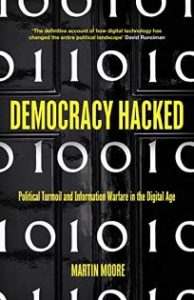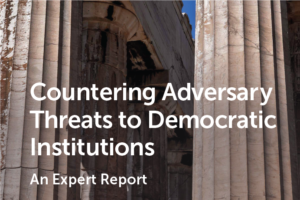 U.S. Defense Secretary Jim Mattis accused Russia on Monday of attempting to influence the outcome of a referendum in Macedonia on changing the country’s name that would open the way for it to join NATO and the European Union, Reuters reports.
U.S. Defense Secretary Jim Mattis accused Russia on Monday of attempting to influence the outcome of a referendum in Macedonia on changing the country’s name that would open the way for it to join NATO and the European Union, Reuters reports.
“We do not want to see Russia doing there (in Macedonia) what they have tried to do in so many other countries,” Mattis told reporters. “No doubt that they have transferred money and they are also conducting broader influence campaigns,” he said, adding it was unclear how effective Moscow’s efforts had been.
Macedonian and Western officials say a recent flurry of social media activity is disinformation directed by Russian-backed groups trying to stoke fears and depress turnout in a vote that could put this Balkan nation on a path to join NATO, The New York Times reports:
And the West is trying to fight back, albeit unevenly: A congressional effort to confront Russian disinformation has been hamstrung by divisions in Washington. ….In Macedonia, officials blame Russian-backed online groups for proliferating false articles and Facebook posts as a way to heighten social divisions, drive down participation and amplify public anger.
 “There is a famous Balkan singer, and they took an old picture of her beaten and bruised in a domestic violence incident, and tried to claim she was beaten by police at the protest,” said Marko Troshanovski, who works for Societas Civilis, a research institute focused on promoting democracy. “The misinformation was later countered, but it was in the blood stream.”
“There is a famous Balkan singer, and they took an old picture of her beaten and bruised in a domestic violence incident, and tried to claim she was beaten by police at the protest,” said Marko Troshanovski, who works for Societas Civilis, a research institute focused on promoting democracy. “The misinformation was later countered, but it was in the blood stream.”
Greek officials have also accused Moscow of interference and have responded by expelling two diplomats, The Times adds.
 “They are spending money in Greece, trying to add to the resistance to the Macedonia name issue,” said Ben Hodges, a former United States Army commander in Europe, who is now at the Center for European Policy Analysis. “Wherever there is a seam or a crack, that is what they will exploit.”
“They are spending money in Greece, trying to add to the resistance to the Macedonia name issue,” said Ben Hodges, a former United States Army commander in Europe, who is now at the Center for European Policy Analysis. “Wherever there is a seam or a crack, that is what they will exploit.”
Russia’s information operations aim to divide Americans by extrapolating instances of judicial shortcomings to the entire judicial system, politicizing the judicial branch, and undermining trust in its ability to make fair, unbiased decisions, according to Suzanne Spaulding and Harvey Rishikof of The Defending Democratic Institutions Project at the Center for Strategic and International Studies (CSIS).
 While policymakers on both sides of the Atlantic have made important strides in confronting election manipulation and related attacks—and, increasingly, understand that information warfare is targeting public attitudes beyond elections—they have not yet come to grips with the threat to the justice system specifically and have not taken adequate steps to protect against it. Efforts to counter information operations more broadly, such as those recommended by a bipartisan group in a CSIS report on “Countering Adversary Attacks on Democratic Institutions,” are a good start. But more focused action is needed to protect the justice system.
While policymakers on both sides of the Atlantic have made important strides in confronting election manipulation and related attacks—and, increasingly, understand that information warfare is targeting public attitudes beyond elections—they have not yet come to grips with the threat to the justice system specifically and have not taken adequate steps to protect against it. Efforts to counter information operations more broadly, such as those recommended by a bipartisan group in a CSIS report on “Countering Adversary Attacks on Democratic Institutions,” are a good start. But more focused action is needed to protect the justice system.
A better public understanding of the justice system, how it functions, and why its role is so important will build resilience against this campaign of divisiveness, they write for Lawfare. As former Sen. John McCain warned in February of this year, “If we continue to undermine our own rule of law, we are doing Putin’s job for him.”
 Given the depth and sophistication of the challenge that Russia’s sharp power poses to the West, the Western response must be adequate in complexity and sophistication and should be coordinated by an interstate or international body, argues Miro Smith—a pseudonym to protect the author’s identity—a diplomat from Georgia. Additionally, the response must include media outlets, the tech and private sectors, and civil society to saturate cyberspace with independent voices. Experience shows that an independent message is more credible and effective, and people are ultimately more receptive when these messages come from non-state actors, he writes for the Foreign Policy Research Institute.
Given the depth and sophistication of the challenge that Russia’s sharp power poses to the West, the Western response must be adequate in complexity and sophistication and should be coordinated by an interstate or international body, argues Miro Smith—a pseudonym to protect the author’s identity—a diplomat from Georgia. Additionally, the response must include media outlets, the tech and private sectors, and civil society to saturate cyberspace with independent voices. Experience shows that an independent message is more credible and effective, and people are ultimately more receptive when these messages come from non-state actors, he writes for the Foreign Policy Research Institute.
How do we know who is exerting sharp power effectively, and how do we gauge its impact? First, public opinion polls should be set aside, according to Christopher Walker, vice president for studies and analysis at the National Endowment for Democracy, Shanthi Kalathil, the director of the NED’s International Forum for Democratic Studies, and Jessica Ludwig, a research and conferences officer at the NED’s International Forum. Far more useful would be compiling and categorizing instances of censorship and manipulation, which could better show the ways in which sharp power shrinks the space for discussion or undermines debate, they write for Foreign Policy:
 This kind of data isn’t necessarily hard to find. For example, the Alliance for Securing Democracy’s Hamilton 68 dashboard, which tracks Russian-linked social media accounts involved with influence operations, has started to quantify and contextualize authoritarian disinformation. It might be a good model on which to base further efforts.
This kind of data isn’t necessarily hard to find. For example, the Alliance for Securing Democracy’s Hamilton 68 dashboard, which tracks Russian-linked social media accounts involved with influence operations, has started to quantify and contextualize authoritarian disinformation. It might be a good model on which to base further efforts.
 The Kremlin is also adept at taking advantage of both willing and unwitting “useful idiots” in the West, notes Tamsin Shaw, a New York University professor specializing in technologies of psychological and cyber warfare.
The Kremlin is also adept at taking advantage of both willing and unwitting “useful idiots” in the West, notes Tamsin Shaw, a New York University professor specializing in technologies of psychological and cyber warfare.
Putin has benefited from the appearance of being [Edward] Snowden’s protector, presenting himself as a greater champion of freedom than the United States, she writes for the New York Review of Books in “Edward Snowden Reconsidered” (September 13):
 In their book Red Web: The Kremlin’s War on the Internet, the Russian investigative journalists Andrei Soldatov and Irina Borogan recounted the experiences of human rights activists who were summoned via an email purportedly from Snowden himself, to a meeting with him at Moscow airport when he surfaced there with Sarah Harrison, to find they were joining the heads of various pro-Kremlin “human rights” groups, Vladimir Lukin, the Putin-appointed Human Rights Commissioner of Russia, and the lawyers Anatoly Kucherena – a member of the FSB’s Public Council, an organization that Soldatov and Borogan say was established to promote the image of the Russian security service; he is also the chairman of an organization called the Institute for Democracy and Cooperation, which has branches in New York and Paris and was set up at Putin’s personal instigation, the authors tell us, for the purposes of criticizing human rights violations in the United States.
In their book Red Web: The Kremlin’s War on the Internet, the Russian investigative journalists Andrei Soldatov and Irina Borogan recounted the experiences of human rights activists who were summoned via an email purportedly from Snowden himself, to a meeting with him at Moscow airport when he surfaced there with Sarah Harrison, to find they were joining the heads of various pro-Kremlin “human rights” groups, Vladimir Lukin, the Putin-appointed Human Rights Commissioner of Russia, and the lawyers Anatoly Kucherena – a member of the FSB’s Public Council, an organization that Soldatov and Borogan say was established to promote the image of the Russian security service; he is also the chairman of an organization called the Institute for Democracy and Cooperation, which has branches in New York and Paris and was set up at Putin’s personal instigation, the authors tell us, for the purposes of criticizing human rights violations in the United States.
“[T]he faith many people had in Snowden and his allies seems misplaced now,” she concedes. “Whenever there’s a young guy who being presented as the lone hero saving the world, whether it’s a Silicon Valley billionaire or an NSA whistleblower, I’d say it’s always a good idea to approach them with a little skepticism. They might not, in fact, have better judgment than everyone else.”







